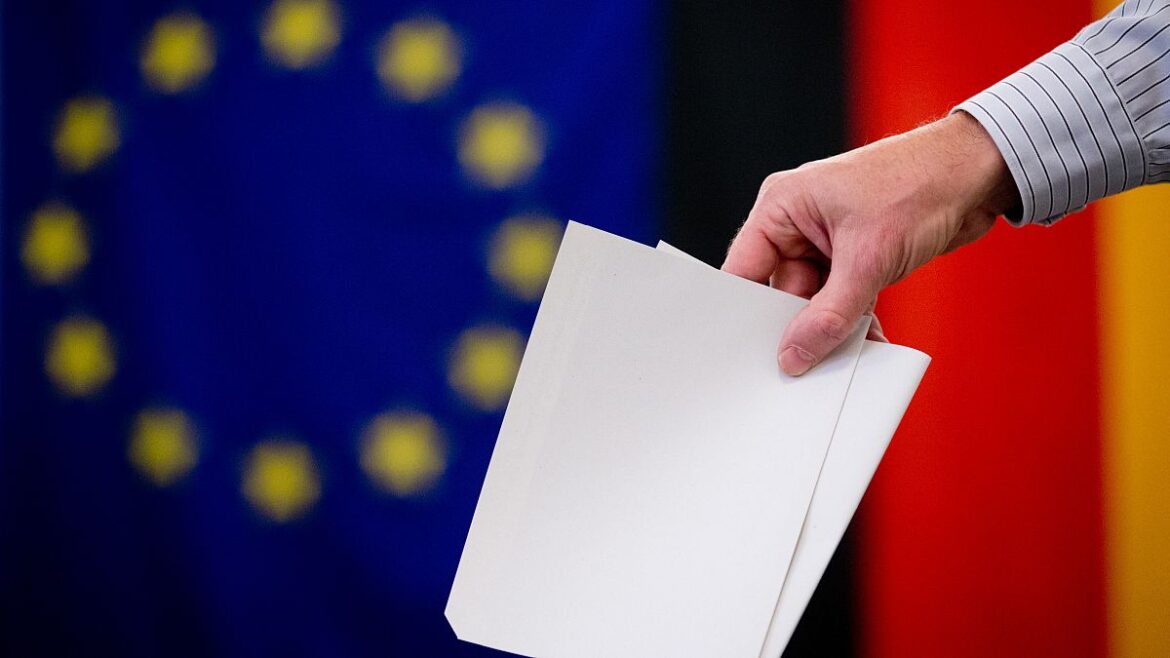In a few months, it will be time to vote and elect our representatives to the European Parliament. Do young French voters feel invested in this democratic process?
In June, a new crucial step awaits the citizens of the Member States of the European Union: voting and electing their representatives to the European Parliament. In the last elections in 2019, there was a significant 50% increase in youth participation compared to those in 2014.
However, the situation was slightly different in France, where young people aged 18 to 39 seemed to have abstained more than their European counterparts. The electoral participation rate in this age group fluctuated between 32 and 37% in France, below the levels recorded in other European Union countries such as Denmark, Germany, and Belgium. where between 60 and 90% of young voters expressed themselves.
But where are we today? Do young French voters feel invested in this democratic process?
We gave the floor to several of them. And the observation is eloquent. “I don’t think I’m going to vote, because I didn’t even know when it was. And then I wasn’t too interested in the candidates and the parties”explains a young woman. “I just turned 18 and I don’t know much about how this works, so we definitely need to do more to educate ourselves”comments a young man. “I’m 19, I’m going to be 20 this year, and I’ve never really heard of what it was. We just know that there are elections, but we don’t know anything at all behind” adds a girl.
Faced with this lack of interest, the Young Europeans – France movement is mobilizing. The organization recently organized a simulation of the European Parliament. In Paris, during the day of January 20, high school students and young people from different French cities had the opportunity to step into the shoes of European deputies. This initiative is part of the MEET project, funded by the European Commission, aimed at sparking debates in various places in Europe to stimulate civic participation among young people.
“I don’t think that young French people are particularly informed about European issues and the functioning of Parliament”underlines Laure Niclot, president of the Young Europeans. “I believe that the last Eurobarometer said that there were only 14% of French people who knew the date of the European elections. So it is a real challenge for us to be able to mobilize them, to be able to raise awareness and information on these issues.”
“I think that projects like today’s, which is organized by the Young Europeans, make it possible to dialogue with young people and make them understand, by doing so concretely, how the European Union works, how the European institutions, the role of Parliament, the role of the Commission, the role of the Council”explain Jessica Larsson, Deputy Head of Representation of the European Commission in France.“I think that this pedagogy is very important to understand that Europe is a democracy and it is also a participatory democracy, as we saw with the Conference on the Future of Europe, of which the “The objective is to mobilize and listen to the expectations of European citizens.”
But what is the EU doing to inform young people about the European elections?
“It’s important to vote informed by being well informed. For that, there is the website of the European Commission, of the European Parliament. There are also our European representations in France. We also have a site. We we are also present on social networks”, explains Jessica Larsson. “So there’s really plenty of access to information and it’s extremely important to be informed and to ask questions and to seek the answers and perhaps to seek out events like today to do this not only virtually”. To find other participatory initiatives, Jessica Larsson invites young people to consult the ensemble.eu platform.
Text in hand, students debate and seek solutions to improve a draft EU law. “What we asked the students to do is to study a text, a resolution of the European Parliament on the Convention on the Future of Europe. They are in a political group, so their objective is to “is to look in the text what they can amend”explains a volunteer from Young Europeans France.
“We have the opportunity to see the negotiations between different parties. Through this simulation, we can put ourselves in the place and in the role and in the skin of these deputies, which teaches us more than a lecture in an amphitheater“, comments enthusiastically a young participant.



